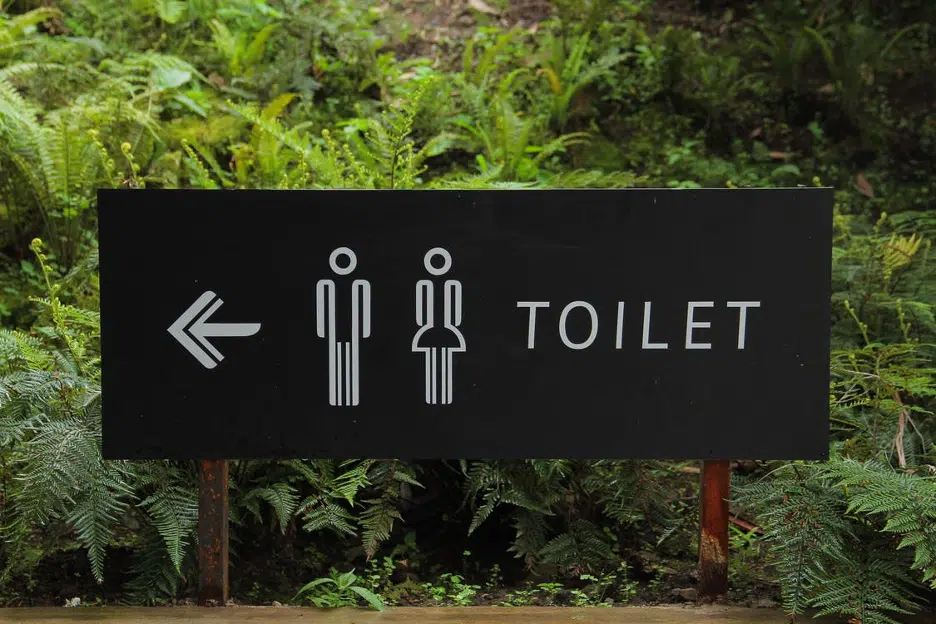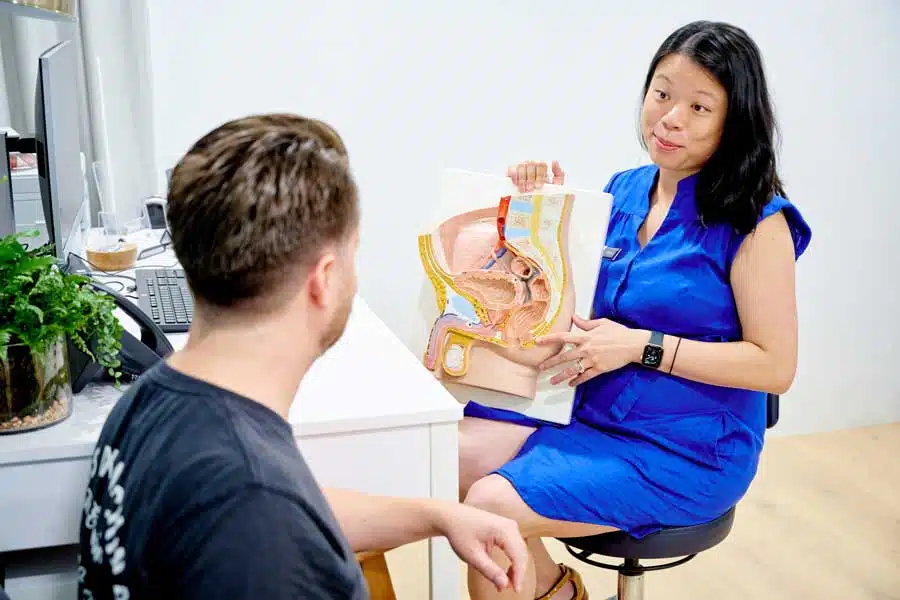Activities like laughing, coughing, and lifting weights aren’t necessarily meant to induce stress or anxiety. But for people who deal with stress urinary incontinence, these simple tasks could come with the risk of unintended bladder leakage.
There are a ton of common activities that we perform every day that put stress on our bladder without us realising it. Those who have issues with bladder control know all too well the way unintentional abdominal pressure can cause urine leakage. Those who struggle with urine leaks may find themselves withdrawing from social situations or certain activities just to avoid accidents. In this way, struggling with involuntary leakage can be a huge detriment to a person’s daily life.
While this issue can feel embarrassing and isolating, it’s not as uncommon as people think. In fact, 1 in 4 Australians today will find themselves dealing with an incontinence issue in their life, a category that includes both men and women. Conditions like stress urinary incontinence, urge incontinence, overflow incontinence, and mixed incontinence all live under this umbrella and can impact a person for a variety of reasons.
Stress incontinence isn’t something you have to go through alone. Let’s get into what stress incontinence is, and the realities of living with this condition.
What Is Stress Urinary Incontinence?
Stress urinary incontinence is a form of urinary incontinence where the bladder will experience small amounts of urinary leakage during activities that put pressure on the bladder. These activities can be anything from exercise to coughing, sneezing, laughing, or running.
Stress incontinence happens when the pressure that keeps the urethra closed is reduced. This means that when you do an activity that increases abdominal pressure, like those we listed above, bladder leakage will happen as a result of the urethra not being fully closed.
Female stress urinary incontinence is the most common form of this condition. Pregnancy, childbirth, and menopause are common stress urinary incontinence causes, because of the impact they have on pelvic muscles.
Pregnancy and childbirth can have a massive impact on a person’s pelvic floor muscle strength, which is the muscle that supports the urethra. When compromised, this means increased abdominal pressure has more impact, leading to bladder leakage. Menopause can also cause stress incontinence, as lower hormone counts can affect the thickness of the urethra and bladder neck, leading to urine leaks.
While stress incontinence is common in women, it also impacts men, especially men with prostate issues such as an enlarged prostate or prostate cancer. Prostate surgery can sometimes lead to stress incontinence issues during the recovery phase.
Living With Stress Urinary Incontinence: Jacqui’s Story
What is it like living with stress urinary incontinence? Let’s explore the story of someone living with this condition. This is Jacqui’s story.
Jacqui is a woman in her 60s who has begun isolating herself from going into public because she is afraid of involuntary leakage ruining her outing. Jacqui used to live an active and social life, visiting friends and family often. Now, Jacqui lives in fear of experiencing urine leakage in public, so she no longer wants to go out and about.
These days, anything can set Jacqui off. The smallest cough or sneeze can send a flood of wee flowing out. When she first experienced this symptom of stress incontinence, she worried it may have just been a urinary tract infection or a result of too much fluid intake. Jacqui has now tried to drink less fluid, has cut out caffeine, and has more frequent toilet trips, but the issue is still not resolved.
Jacqui now worries that her urinary incontinenc might just be her fault, and as a result of her not being able to control herself. She feels too embarrassed to purchase adult nappy products and feels ashamed bringing this up with friends and family.
Instead of seeking out treatment options, Jacqui has let the shame and stress of her bladder leakage in public keep her isolated. This in turn has negatively impacted her day-to-day life, and she is at a loss for what to do.
What should a person do if they, like Jacqui, have found themselves suddenly isolated due to the impact of stress urinary incontinence? There are lots of people across the globe who have stories similar to Jacqui, and like her, haven’t taken the steps to fix things.
People like Jacqui should not feel ashamed, and need to know there is help out there! Stress incontinence is a condition that has treatment options, and it can be addressed to allow for a return to normal daily life.
What To Do If You Have Stress Urinary Incontinence
If you resonate with Jacqui’s story, we’re here to tell you that you’re not alone. There are lots of different things you can do to get help for stress urinary incontinence.
Do Your Research
As we touched on above, there are lots of different incontinence issues that can lead to urinary leakage. Stress incontinence is one of many conditions that exist under the incontinence umbrella. There is a chance that other conditions, such as urge urinary incontinence, mixed urinary incontinence, or urinary retention, could be behind your bladder leakage issues instead.
You can also use resources such as the Continence Foundation of Australia to learn more about these conditions, so you can take the next steps with a healthcare professional.
Avoid Certain Drinks
Common bladder irritants include things like caffeine, alcohol and sugar. Limiting your intake of caffeinated beverages like coffee and sodas, alcoholic beverages, and sugary juices can sometimes help with bladder leakage issues.
Contact a Pelvic Physio Clinic
Finally, we highly recommend reaching out to a pelvic Physio clinic as a primary treatment option for stress urinary incontinence. Addressing pelvic floor issues with pelvic floor muscle training is the main form of treatment for this condition. Physiotherapy is effective in treating stress incontinence in 80% of cases, through the use of pelvic floor exercises and other treatments that support pelvic health.
If you want information on how pelvic floor exercise can help, reach out and book an appointment at the Sydney Pelvic Clinic. Our team is prepared and ready to help you gain better bladder control, and get back to living a normal life. Click here to contact us and book an appointment.

